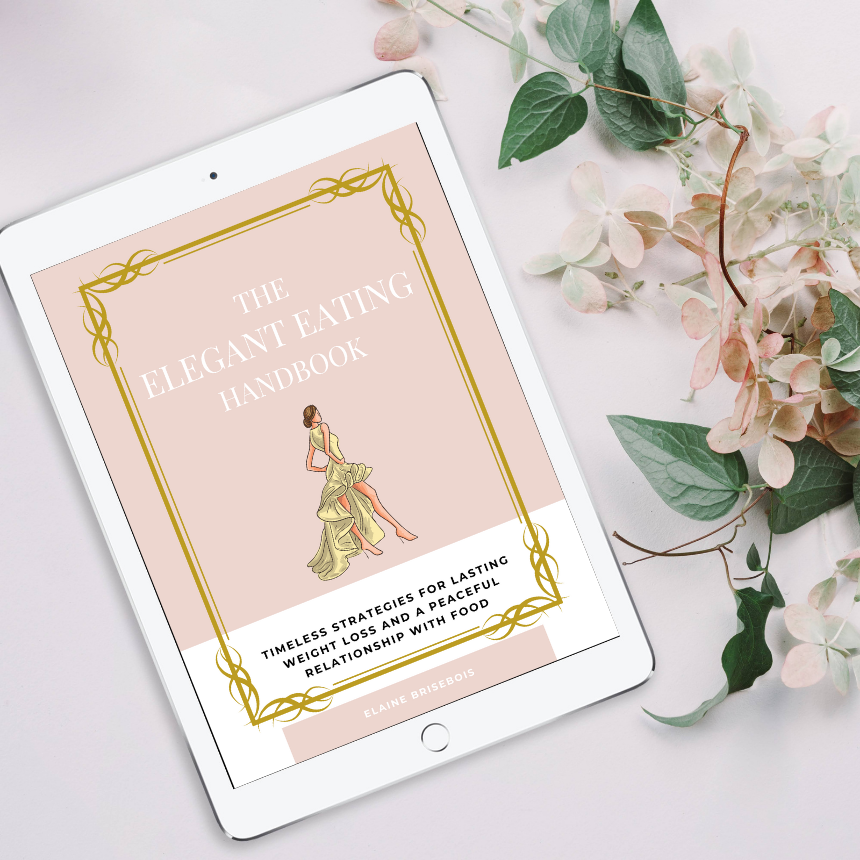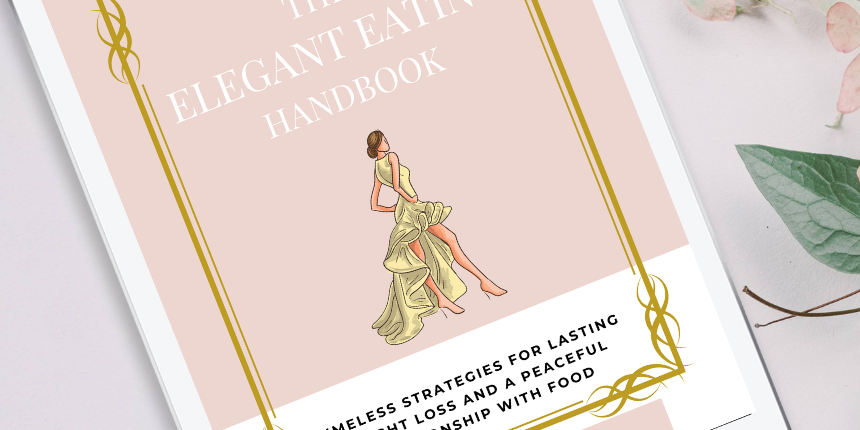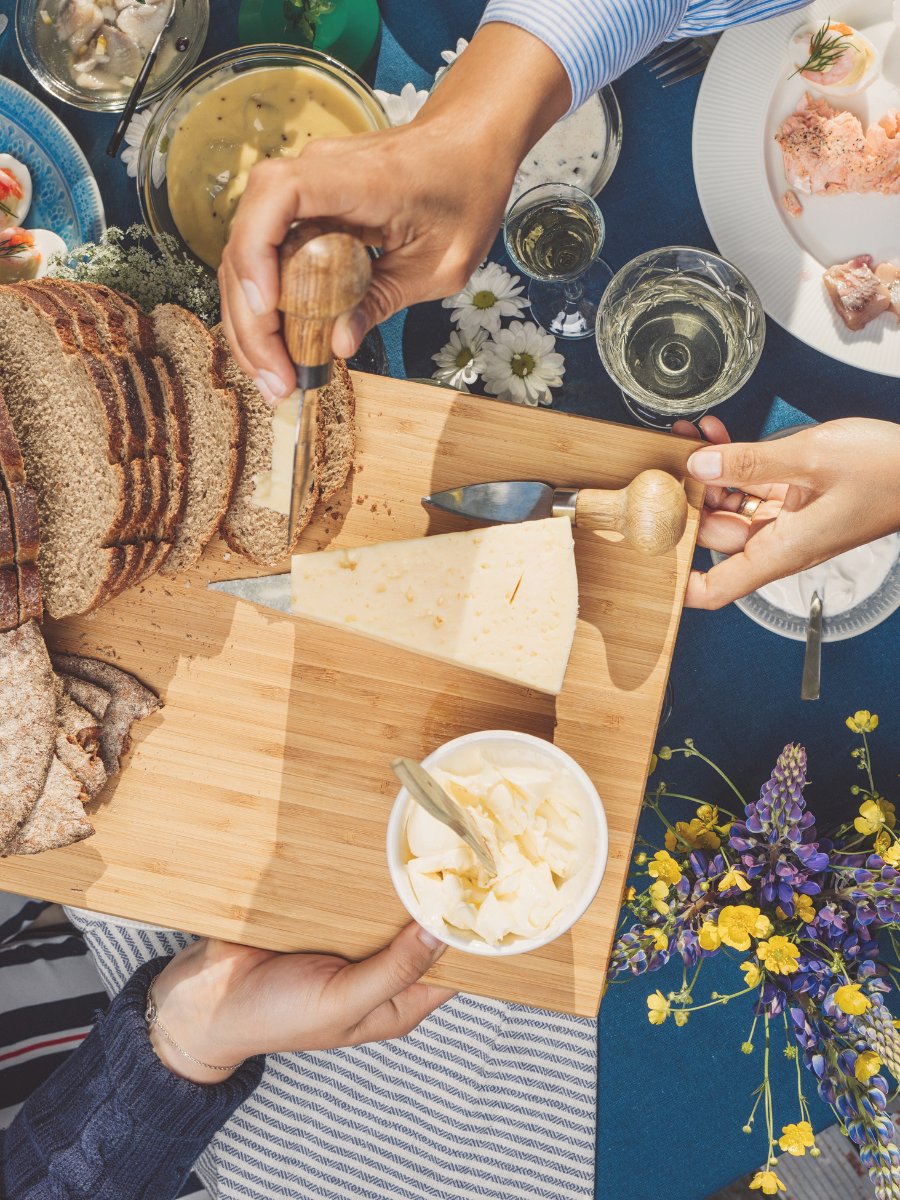I eat perfectly in the daytime but then dinner turns into an all-night event.
I can’t watch Netflix without popcorn or snacks.
I was doing fine until my colleague brought in the doughnuts.
After a stressful day at work, I deserve a treat!
One glass of wine turned into 3.
It’s impossible to eat healthy when my husband is always tempting me with food.
These are just a few of the sentiments that I sometimes hear from clients – reasons why they can’t stick to their “eating plan,” despite their desired weight or health goals.
But the truth is, we can have the best of intentions to eat a certain way, but in the moment when we’re stressed, tired, or feeling emotionally drained, our mental programming kicks into gear, and it can suddenly feel more desirable to reach for what’s most convenient and will give us that quick hit of energy.
If this sounds familiar, please know that nothing has gone wrong.
You’re not a terrible person who has no willpower.
It’s just your primitive brain doing what it knows how to do best – to seek pleasure, avoid discomfort, and expend as little effort as possible.
If you’ve been practicing the habit of giving in to those urges to eat, you’ve simply become a pro at it, albeit unintentionally.
To break the habit and make it less automatic, you have to start practicing the opposite of what you’re doing now – or in other words, not giving in to those urges.
At first, this will feel a little torturous, but the more you practice, the more you will start to de-condition the habit, and the easier it will be to not react to the urge.
Enter the 24-Hour Plan.
Making decisions ahead of time is an excellent strategy for building confidence, trust, and integrity.
If you find yourself continually eating “behind your own back” or giving in to what you want most in the moment, over what you desire most long term (i.e. weight loss), this strategy is for you.
Consider it the practice of being the CEO of your eating.
We’re using our pre-frontal cortex, the part of the brain responsible for “executive functions” like decision-making, problem-solving, planning, and acting with our best interests (and goals) in mind.
It frees up mental bandwidth because you don’t need to make any hard decisions in the moment.
There is no negotiating with yourself – no hemming or hawing over whether you should eat something or not.
Essentially you decide ahead of time what you’ll eat for the next 24 hours.
Then when that time rolls around, you eat only that and nothing more.
Why 24 hours?
It’s doable, it’s digestible, and it’s bite-size. It’s only 24 hours after all.
Feel free to plan ahead further if it works for you.
But always be kind to yourself when creating your plan.
The key is to make it doable so you can follow through on it.
Deciding ahead of time is a practice in self-love – not deprivation.
Be kind to yourself when creating your plan.
Think about your future self – as in the “you” who will be following it tomorrow.
Too often, I see women set themselves up to fail by creating an impractical plan.
Sure, perhaps they can willpower themselves through a day or two, but then it’s just not sustainable.
The “willpower muscle” begins to fatigue, which it inevitably does.
Remember, the point is to build confidence, trust, and integrity with ourselves – not to hold ourselves to some unrealistic standard.
It’s not uncommon to resist the process:
- I don’t know what I’ll want to eat tomorrow.
- I have a family gathering – I don’t know what they’re serving.
- I’m travelling.
- I’m going to a restaurant – I don’t know the menu.
- I like being spontaneous!
The list goes on.
Here’s the thing though, you can include as much or as little detail as you wish.
Less detail might look like sticking within the parameters of your personal protocol, with a little more detail filled in.
For example, if you’re going to a restaurant and you’re not sure of the exact menu, you might write down:
Main meal salad w/ whatever healthy protein options are on the menu.
1 glass of wine
If you’re cooking at home and you know what you’re working with, more detail could look like:
2 baked chicken thighs, ½ baked sweet potato w/ a little butter, 2 cups of cooked veggies.
If you’re concerned about not wanting something in the moment that you had planned for breakfast, for example, then you might consider specifying a few options in case the original one no longer appeals.
Be realistic and meet yourself exactly where you are right now.
If you know that on Friday you’re going out for dinner and you would typically order appetizers, dessert, and wine, then maybe you decide ahead of time that the appetizer will be a simple salad, you’ll order whichever main dish appeals, and you’ll skip the dessert and enjoy a cappuccino (hold the sugar) instead.
A little better means you’re still making progress.
The more you do this, the easier it becomes.
As your food starts to become more predictable you can get away with including less detail because you start to know what types of foods and quantities work for you.
I also suggest planning out your exceptions.
Exceptions are foods/drinks that are not a part of your regular protocol (as in the one that you’re following to get to your desired goal) or eating plan, but you still wish to partake in from time to time.
It might be a croissant on the weekend or enjoying an ice cream on a warm summer night.
By planning your exceptions ahead of time, you’re not just reacting to a sudden urge or craving in the moment. Rather, you’re eating it intentionally and on purpose.
If the time rolls around and you no longer feel like consuming it, then you don’t.
This goes with other urges that come up out of the blue. Like suddenly you have a craving for licorice or gummy candies or a cupcake – tell yourself you can have it but you must wait 24 hours.
It’s a bit of trickery for the mind because most likely, when the time comes there’s a good chance you’ll no longer want it – especially if you have to leave your home to purchase it (a great reason for not keeping these things in the house).
If you do still want it when the time comes around, again, at least you’re eating it on purpose and with intention.
Do I always suggest keeping a 24-hour plan?
If your food has become more predictable, you’re happy with what (and how much) you’re eating, and you like the results you are getting – then it’s entirely up to you.
Keep in mind, though, that “decision fatigue” is a real thing.
If you can free up some mental energy with fewer choices, you need to make during your already busy day, the more energy you’ll have to put towards accomplishing other goals in your life.

Hi! I’m Elaine, a Certified Nutritionist and Master Certified Health Coach. I support women in achieving their health and body goals while prioritizing a peaceful and balanced relationship with food.

Get a free copy of my handbook!
The Elegant Eating Handbook: Timeless Strategies for Lasting Weight Loss and a Peaceful Relationship with Food.
share with friends
keep reading...





[…] If you have a social engagement to attend, it’s best to decide ahead of time how much you will or will not eat/drink. […]
[…] If you’d like to learn more about implementing this tool into your own life, check out this blog post here: The 24 Hour Plan (Decisions Ahead of Time). […]
[…] Realistically plan. […]
[…] may choose to keep them in as planned exceptions and occasional treats – occasional being the operative word (more on this in chapter […]
[…] By planning now, you don’t have to make any decisions tomorrow. […]
[…] If you want to still incorporate those things that you have a lot of desire for, then only consume them when you’ve made the decision to do so from your “higher brain” (prefrontal cortex). […]
[…] Planning and making decisions ahead of time […]
[…] The 24 Hour Plan (Decisions Ahead of Time) […]
[…] Planning and making some decisions ahead of time […]
[…] the key here is to *plan ahead* (particularly for treats and […]